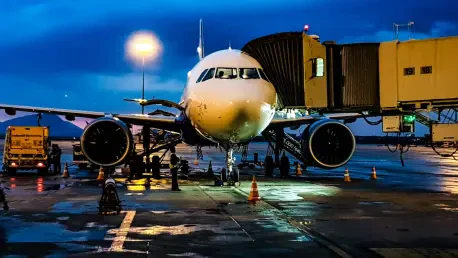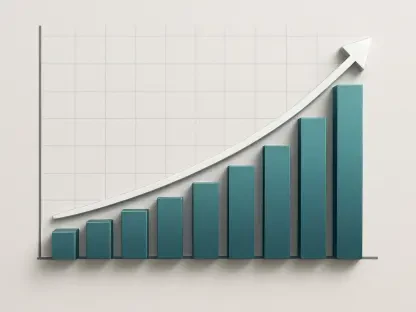The aviation industry, hit hard by the COVID-19 pandemic, saw extensive losses due to travel restrictions and subsequent operational hurdles, including staff shortages and airport congestion. As restrictions lifted, companies faced the dual challenge of reviving operations amidst lingering external factors, such as geopolitical tensions and fluctuating fuel prices. Yet, for International Airlines Group (IAG), which owns major airlines like British Airways and Iberia, the first quarter of 2025 proved significant. IAG reported a notable profit of 176 million euros, starkly contrasting with the previous year’s first-quarter loss of 4 million euros. This achievement marked the company’s first profitable first quarter since 2022, demonstrating a substantial turnaround in the sector amidst lingering challenges.
Strategies Behind IAG’s Financial Success
Effective Cost Management and Increased Revenues
One of IAG’s pivotal strategies in achieving profitability was its adept cost management combined with increased revenue generation. Fuel prices, which often fluctuate due to global instability, present a formidable financial challenge. Despite these difficulties, IAG managed to control costs effectively, contributing to a 9.6% revenue growth that amounted to 7.044 billion euros compared to last year’s earnings. This revenue surge largely resulted from increased passenger numbers and higher ticket prices, reflecting renewed customer confidence and travel demand.
IAG’s strategic management not only involved adapting to external financial pressures but also included maximizing operational efficiency and streamlining its resources across its subsidiaries. This approach allowed IAG to capitalize on market opportunities and enhance its competitive edge in the aviation sector. By aligning its operational strategies with market demands, IAG successfully navigated hurdles to emerge as a more robust entity in the airline industry.
Brand Strengthening and Market Expansion
Luis Galego, CEO of IAG, highlighted the company’s commitment to strengthening its various brands, particularly in North American, Latin American, and European markets. Expanding market presence was central to IAG’s strategy, enabling greater reach and customer engagement across these regions. IAG’s focus on enhancing brand visibility and reliability resonated positively with consumers, contributing to its successful financial outcomes.
Dedicated efforts toward rebranding and investing in marketing strategies enhanced customer outreach, ensuring increased seat bookings and solidifying customer loyalty. With 80% of seats booked for the following quarter, the results indicate outstanding brand reception and customer willingness to invest in travel, reflecting broader recovery within the industry. This market expansion and brand reinforcement are key drivers in IAG’s ongoing financial recovery, paving the way for sustained growth.
Challenges and Future Prospects
Navigating External Uncertainties
Despite the current success, IAG continues to grapple with external challenges, including political uncertainties and macroeconomic conditions that may impact long-term planning and finances. Geopolitical tensions, particularly the Ukraine conflict, have direct implications for fuel costs and overall operational expenses. In navigating these challenges, IAG incorporates strategies to mitigate risks and focus on long-term stability.
The potential fluctuations in global economic conditions necessitate strategic foresight and adaptability, crucial for maintaining profitability amidst possible adversities. IAG addresses these concerns head-on by developing comprehensive plans tailored to external economic variables, ensuring continued resilience against adverse factors.
Building on the Financial Foundation
Looking ahead, IAG’s forward-thinking approach emphasizes leveraging its current success as a foundation for further growth. With robust strategies in place and promising seat bookings, the prospects for continued profitable operations seem attainable. The company’s trajectory suggests an upward trend, provided they maintain operational discipline and responsiveness to industry changes.
The solid financial performance in the first quarter exhibits IAG’s ability to adapt and excel despite adverse circumstances, a testament to its strategic acumen and operational expertise. This foundational success positions IAG impressively within the aviation industry and sets a positive precedent for future quarters, offering confidence amidst ongoing efforts to strengthen its market foothold further.
Economic Outlook and Reflection
A key factor in IAG’s quest for profitability was its proficient management of costs, paired with strategies for boosting revenue. One major challenge it faced was the volatile global fuel prices, which pose serious financial obstacles. Despite these hurdles, IAG was able to keep costs in check, leading to a 9.6% increase in revenue to 7.044 billion euros, compared to the previous year. This revenue growth was largely driven by a rise in passenger numbers and increased ticket prices, which signaled a rebounded customer confidence and heightened travel demand.
IAG didn’t solely focus on reacting to external financial pressures; the company also emphasized enhancing operational efficiency and optimizing resource allocation among its subsidiaries. This well-rounded strategy enabled IAG to seize market opportunities and strengthen its position in the competitive aviation landscape. By aligning its operational choices with current market needs, IAG skillfully tackled challenges, emerging as a more resilient force within the airline industry.









